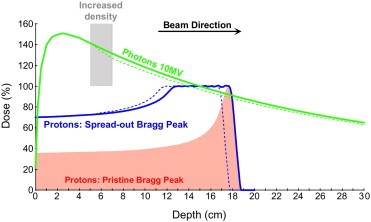Student Colloquium - Andreas Gravgaard Andersen: Towards adaptive image- and dose-guided proton therapy
Info about event
Time

Supervisor: Ludvig P. Muren
Proton therapy is a method for treating cancer, which, in comparison to photons, give a very localized dose distribution. This allows for a treatment plan that will better spare the organs at risk while maintaining a high dose to the tumour.
However, the benefit of proton therapy may be jeopardized by dose deterioration caused by density variations in the beam path, for instance caused by organ motion in the patient during the course of therapy. This presentation will cover three projects aiming to take advantage of the benefit of proton therapy while accounting for the challenges of density changes.
Study 1:
The first study introduces a method to evaluate robustness of proton therapy with respect to inter-fractional motion and applies it to irradiation of the pelvic lymph nodes from different beam angles.
Study 2:
Using a larger patient cohort, this study evaluates the inter-fractional robustness of proton beams from different beam angles in irradiation of pelvic lymph nodes, using the method from Study 1.
Study 3:
Cone-beam (CB) CT imaging may enable image/dose-guided proton therapy but is challenged by image artefacts. This study explores the use of an a priori scatter correction algorithm on CBCT projections to improve the precision and accuracy of CBCT-based proton dose calculations.
